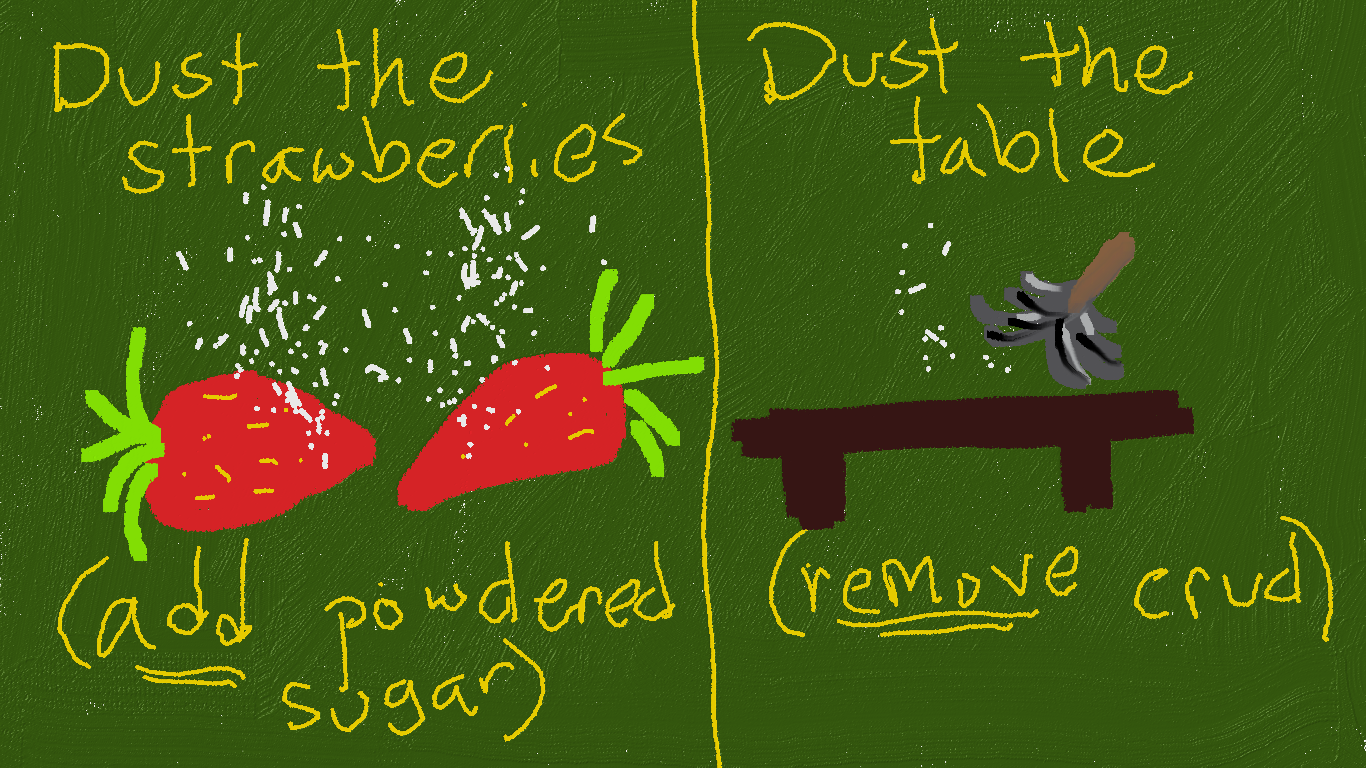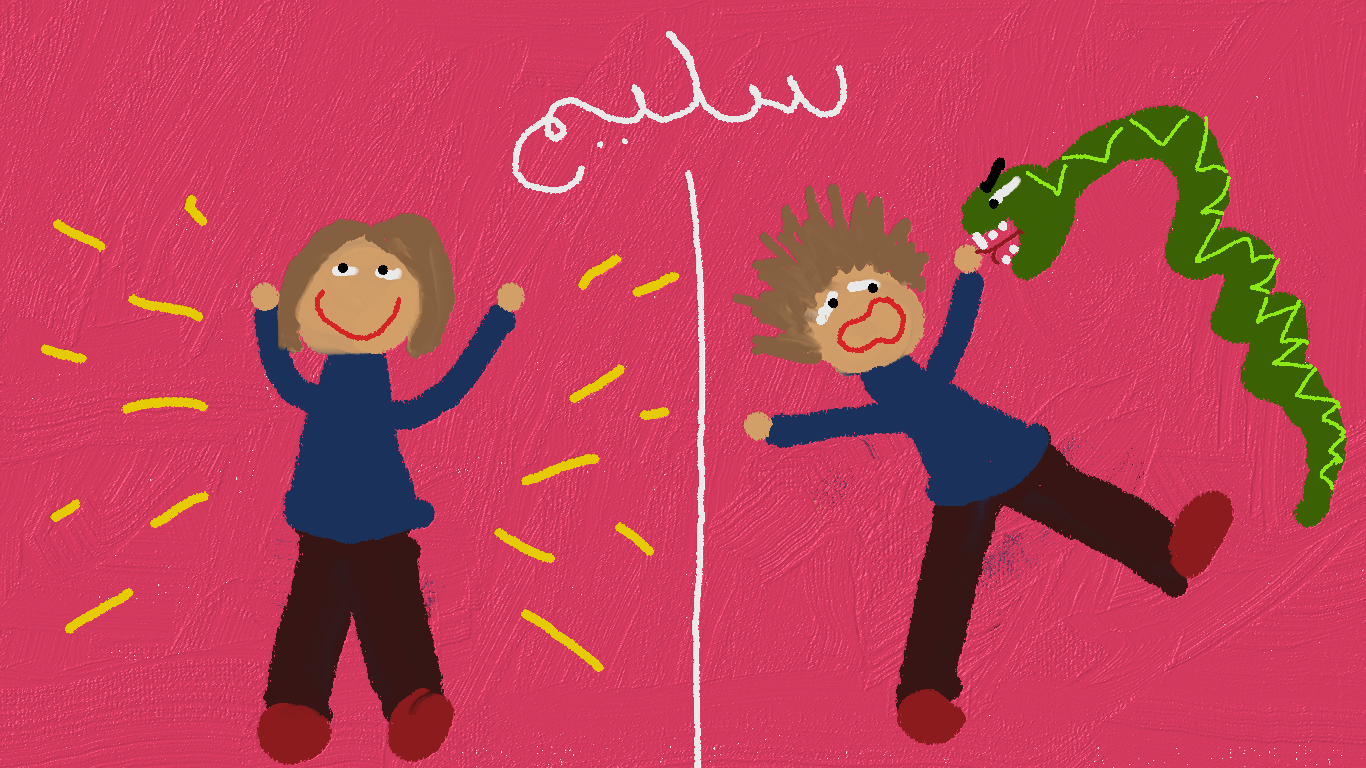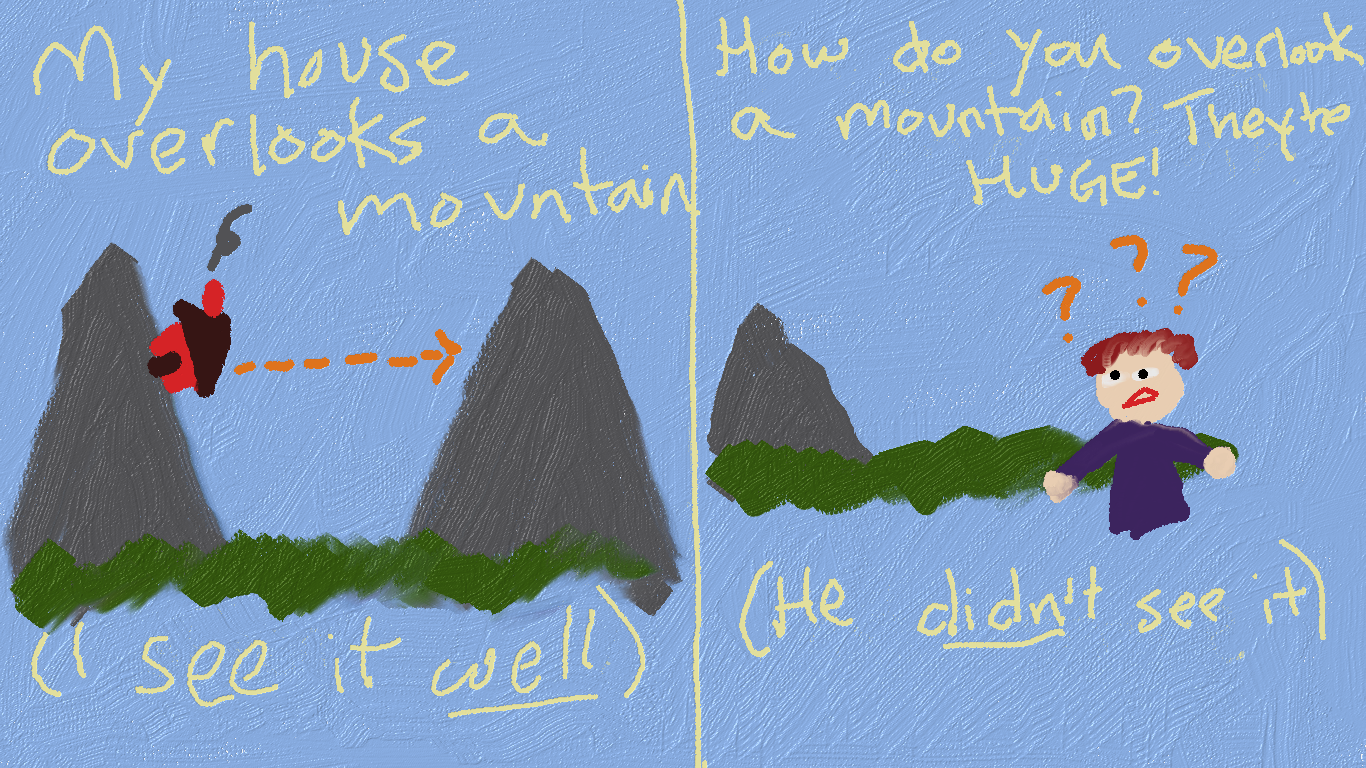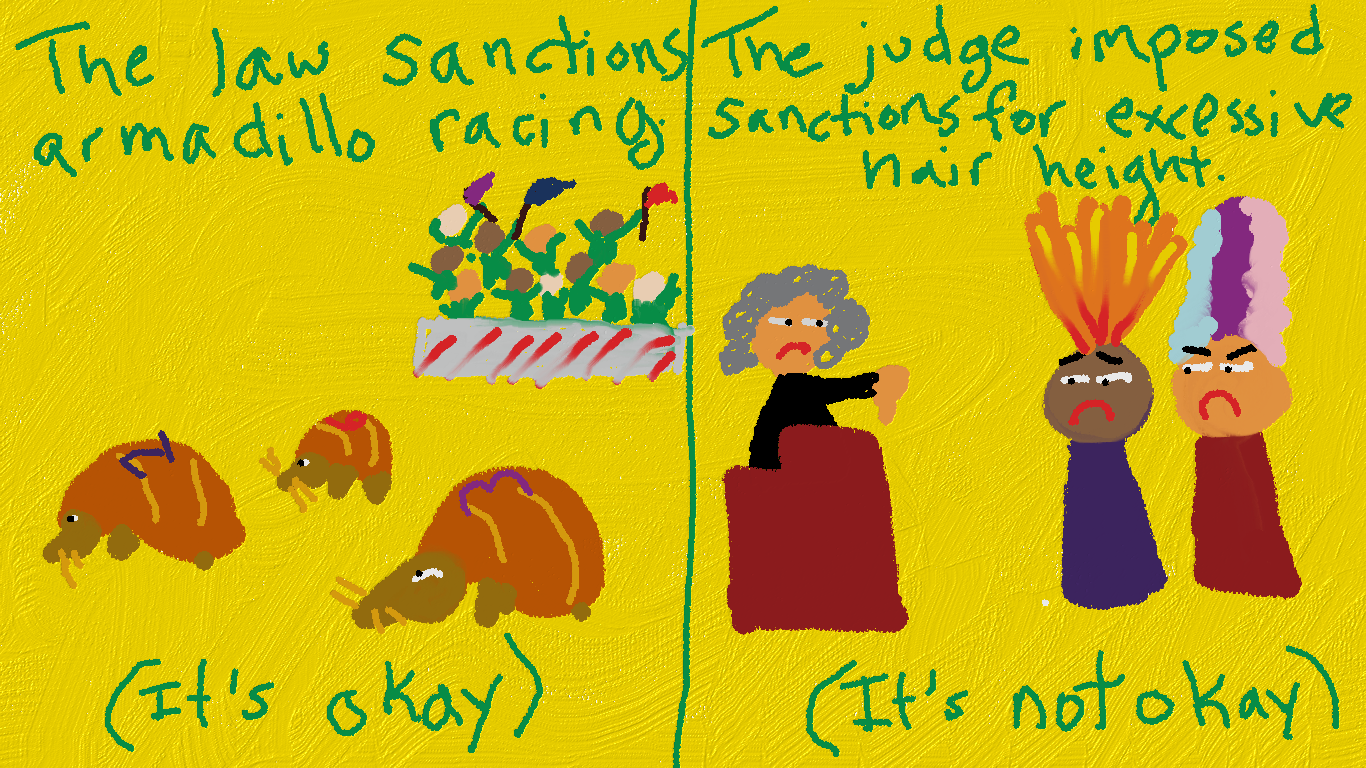Language Nerd, how does anyone ever learn English when a word like “cleave” can mean can mean “to split apart” or “to stick together”? Why would a word be its own opposite???
-Patricia Quinn
***
Dear Patricia,
Learning English is no joke, and contronyms are an unpleasant part of the process, but at least they aren’t too terribly common. There are two ways that contronyms come about. First, two different words that are already opposites can become more similar in spelling over time. This is what happened with “cleave,” where the “to split” side was cleofan and the “to adhere” side was clifian, and they grew together. (This is also true of “buckle,” but that always struck me as kind of a weak contronym — “to fasten” and “to collapse” are different, definitely, but opposites? Hmph. There’s no definitive list yet of English contronyms or of standards for being one, so in my book, “buckle” is out.)
The other, more common way is for one word to develop two opposite meanings over time. That may seem like an odd thing for a word to do, but words are constantly in a state of flux. People tend to think of words as having strict borders around their definitions, but they’re more like big balls of wibbly wobbly timey-wimey stuff. Polysemes are words that look the same and sound the same and are clearly related, but have different meanings.* “Salt,” for example, started off as a noun and then added the verb meaning “put this noun on some other noun.” “Dust” went just a little farther and made it to contronymy infamy:

Back by popular demand: Language Nerd Art. Though why these things are popular, I couldn’t tell you.
“Overlook” has a similarly dramatic history. The word started out as “look at from above,” and two strains of that meaning grew stronger: “to survey from on high” and “to look over the top of (something),” which evolved respectively into “to have a good view of, to look at carefully” and “to not notice.”
“Sanction” means to confirm a law, or to permit something, or to authorize it. However, it gained the specialized sense of enforcing a law… by punishing transgressors:
Inflammable is slightly more complicated, but we’ve already been there.
At least two words in English are undergoing this transition currently. “Nonplussed” has historically meant “bewildered, frustrated, or perplexed,” but just look at the thing! It looks like “not plussed,” and while “plussed” isn’t a word I’ve ever heard, it seems like it would be excitable, or antsy, or cranky — “plus” some strong emotion. Which clearly means that to be “nonplussed” is to be cool, or calm, or James Bond. That’s how I figured the word back when I was just a wee little Language Nerd, and apparently a large chunk of America is with me — the “unfazed” meaning is growing rapidly.
The other upcoming contronym is “literally,” which is well on its way to meaning both “literally” and “figuratively,” and there’s nothing you can do to stop it.
So these guys are a pesky part of learning the English language, sure, but let’s back up a second: English in no way has a monopoly on contronyms. In fact, our study of contronymy is based on the Germans’ study of their own Gegensinn. The study of contronyms only got serious pretty recently, so I don’t have hard numbers here, but most languages have some contronyms, and languages with more homophones than English probably have more contronyms too.** The only language that has had a good number of contronyms explained in English is Arabic, which is fortunate, because Arabic has some great ones. Jawn means both “black” and “white,” nahil means both “thirsty” and “quenched,” and saleem is my absolute favorite:

“Person who was recently cured” and “person who just got bit by a snake.” Saleem: The Greatest Contronym.
…you know, now that I think about it, I’ve heard “impregnable” used as a contronym, too, but I ain’t drawing that one.
Yours,
The Language Nerd
*Homonyms, in contrast, are words that look the same and sound the same and are not clearly related and have different meanings. Note that homonyms may actually be related historically, and polysemes might not be, but this isn’t relevant – it’s only how we perceive them today that matters.
**Homophones being words that sound the same, with no regard to meaning or spelling. “Sea” and “see” and “si” are all homophones. As to what makes a language have more or fewer homophones, well, that deserves its own column.
And a final P.S.: The title of this column isn’t actually a contonym, because none of the individual words are their own opposites; instead, it’s amphiboly, where a grammar structure causes a whole sentence to have two different possible meanings. But in amphiboly, the meanings aren’t required to be opposites. “Last night I shot an elephant in my pajamas – how he got into my pajamas I’ll never know” is amphibolous, but the meanings are just different, not opposites. As far as I know, there’s not a term specifically for amphiboly that leads to opposite meanings, so I’m coining one now: contramphiboly!
The contramphiboly in the title, by the way, is taken from a quote by Moses Hadas, and the pajama bit is of course by Groucho Marx.
Got a language question? Ask the Language Nerd! asktheleagueofnerds@wordpress.com
Or: Twitter @AskTheLeague / facebook.com/asktheleagueofnerds
“Literally” deserves its own Language Nerd column too, but apparently Jesse Sheidlower has already written it. If you are a “literally” literalist, click that link and be fascinated!
Today I got etymology info from both etymonline and OED – because I am trying to be a better person?
Word Up! A Lively Look at English by Rob Kyff, clearly a master at capturing the youth demographic, has a handy discussion of contronyms at the beginning.
Arabic contronyms, and an absorbing discussion of how difficult they make it to translate the Qur’an to English, at “Translating Autoanyonymy in the Qur’an” by Aladdin Al-Kharabsheh.
This article is not relevant to today’s topic in the slightest, but it is great: http://www.npr.org/blogs/codeswitch/2013/04/10/176234171/learning-how-to-code-switch-humbling-but-necessary


Brilliant! (Said in my best Tenth Doctor voice.)
[…] Saleem has been featured here before as The Greatest Contronym. […]
[…] Literally. I wrote a whole article about contronyms once and the only reaction I got was to the single sentence involving “literally.” Doesn’t […]
[…] Saleem has been featured here before as The Greatest Contronym. […]
[…] Literally. I wrote a whole article about contronyms once and the only reaction I got was to the single sentence involving “literally.” Doesn’t […]
Contronyms are really tricky for new speakers of English. That’s why to make them simpler to understand we’ve illustrated them on our website: http://livgently.com/11-english-words-which-are-their-own-opposites